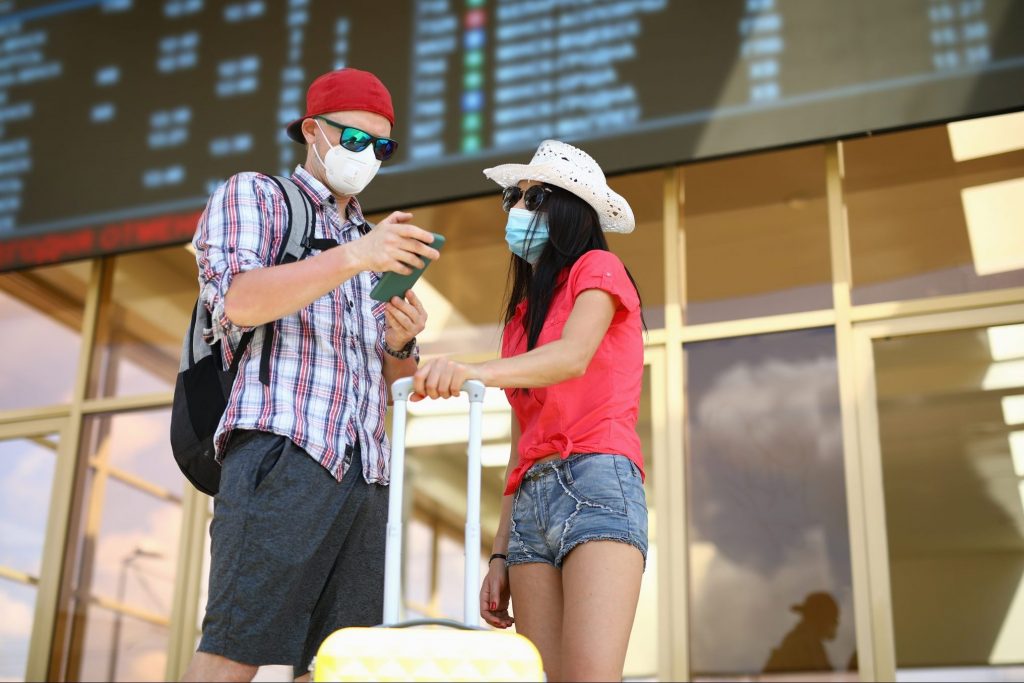U.S. Airport Covid Testing Comes Down to Truth or Dare

Skift Take
As coronavirus continues to ravage the air travel industry, the number of on-site Covid-19 testing clinics is increasing at several U.S., airports simplifying travel during the pandemic for passengers flying to international and domestic locations that require proof of a negative coronavirus test result for entry.
Great idea, right? Not so fast.
These testing centers being set up at airports — seemingly to screen people getting on planes — is one more safety layer both airlines and airports are providing to safeguard customers in an effort to instill public confidence in traveling throughout the pandemic as the industry recovers.
While recent studies have shown that air quality on airplanes and safety measures throughout airport terminals make it safe for passengers, what makes Covid-19 testing at airports essentially a waste of time?
A federal law you might have heard of called the Health Insurance Portability and Accountability Act of 1996, better known as HIPAA, protecting individuals from having their sensitive health information disclosed without their knowledge or consent.
HIPAA rules prevent airport testing centers from contacting airlines or notifying airports should someone test positive. So the reality is people can test positive and walk right on to a plane if they are not honest.
The reporting lines on testing information is not standardized across U.S. airports, leaving a bit of a disconnect for testing information and results.
Airports are just the landlord, and it's the same thing nationwide at the 40 airports with coronavirus testing clinics from a passenger's perspective, said Palm Beach airport spokesperson Lacy Larson.
"Prior to testing, passengers are required to sign an acknowledgment confirming that they are not allowed to travel with a positive test result, are required to notify their airline, and must comply with Centers for Disease and Control (CDC) guidelines, including self-quarantine requirements, following a positive result," Larson said. "As required by law, all positive test results are also reported to the county health department."
Just like on a visit with your general practitioner, HIPPA protects patient privacy and prevents providers from sharing patient records without consent. That includes whether or not a patient tests positive for Covid-19, said Rachel Mills, spokesperson for Helix Virtual Medicine, an airport testing clinic.
"Passengers traveling to and from certain destinations may be required to provide documented proof of a negative Covid-19 test prior boarding; otherwise, the system works via the honor system," Mills said.
The safety and well-being of all passengers and employees is the top priority of U.S. airlines. Since the onset of this crisis, U.S. airlines have relied on science to help guide decisions as they continuously reevaluate and update their processes, procedures and protocols, said Airlines for America spokesperson Katherine Estep.
"In addition to implementing multiple layers of measures to mitigate the risk of transmission onboard, A4A member airlines proactively implemented pre-departure health-acknowledgement forms to encourage passengers to evaluate their own health prior to travel," said Estep. "We remain confident that this layered approach significantly reduces risk and are encouraged that science continues to confirm there is a very low risk of virus transmission onboard aircraft."
As we've seen in the past with airline passengers knowingly traveling while infected with Covid-19, those passengers may be barred from certain carriers. Passengers knowingly traveling with Covid-19 may also be subject to repercussions by the CDC in partnership with the Department of Homeland Security, said Mills.




